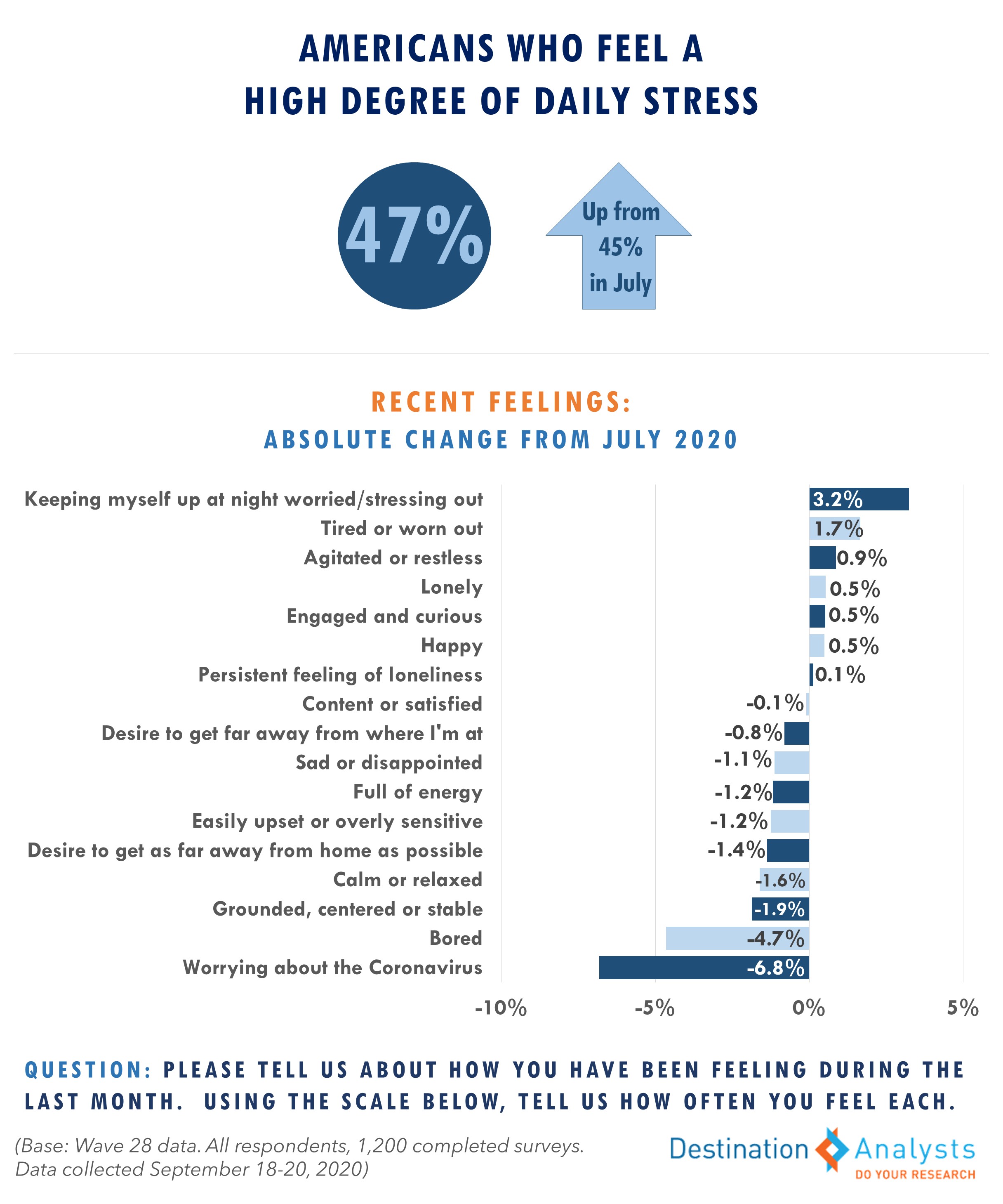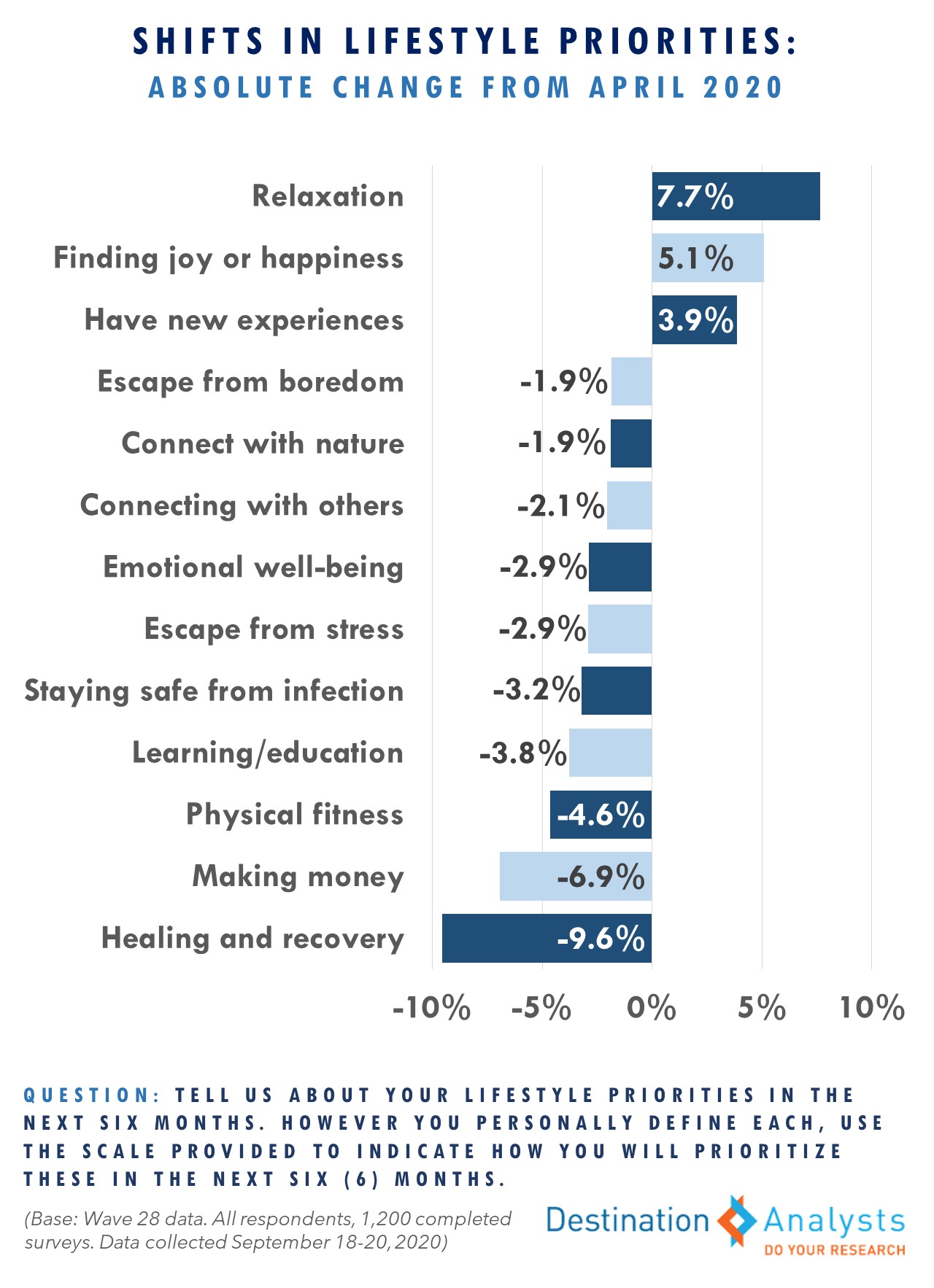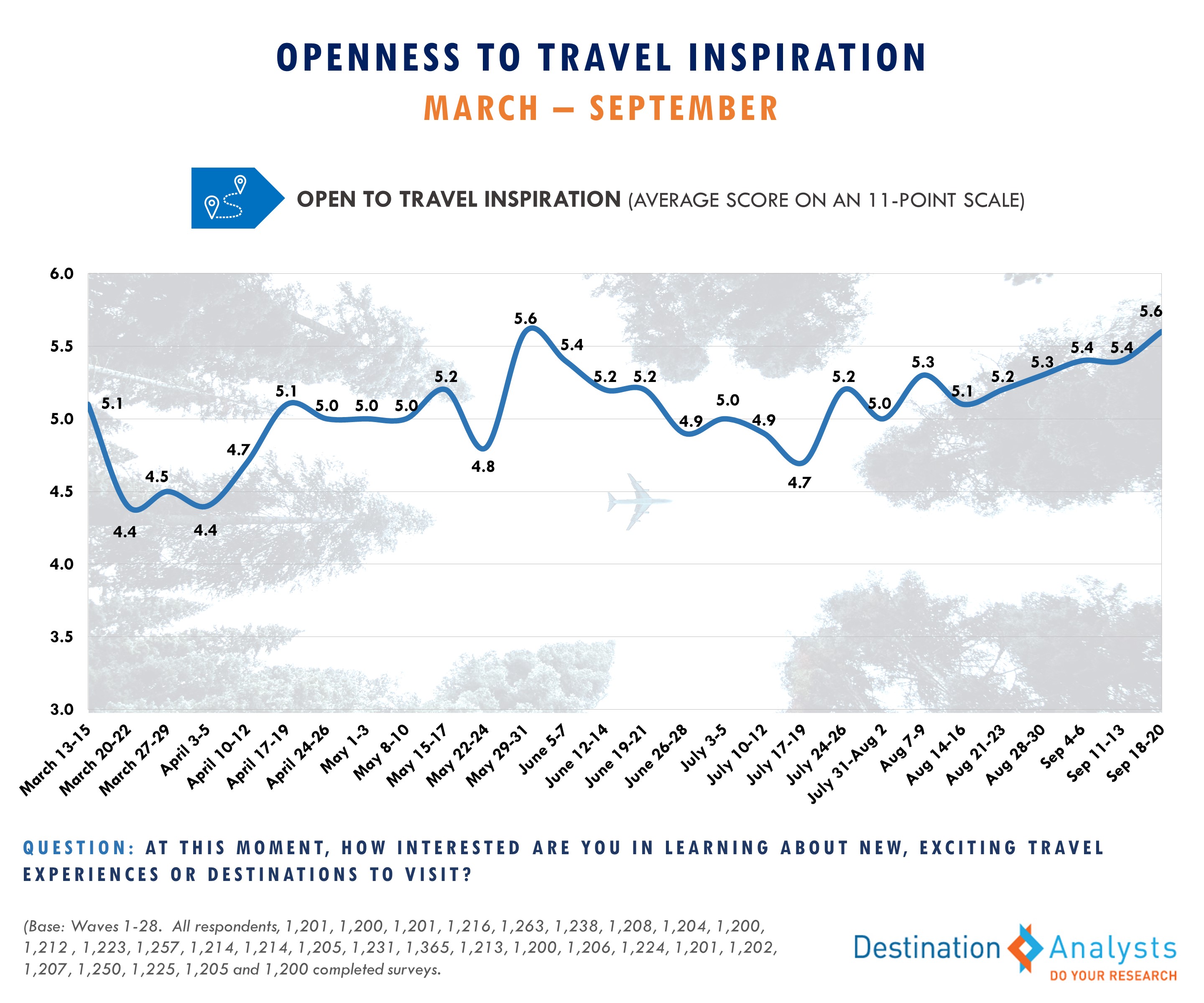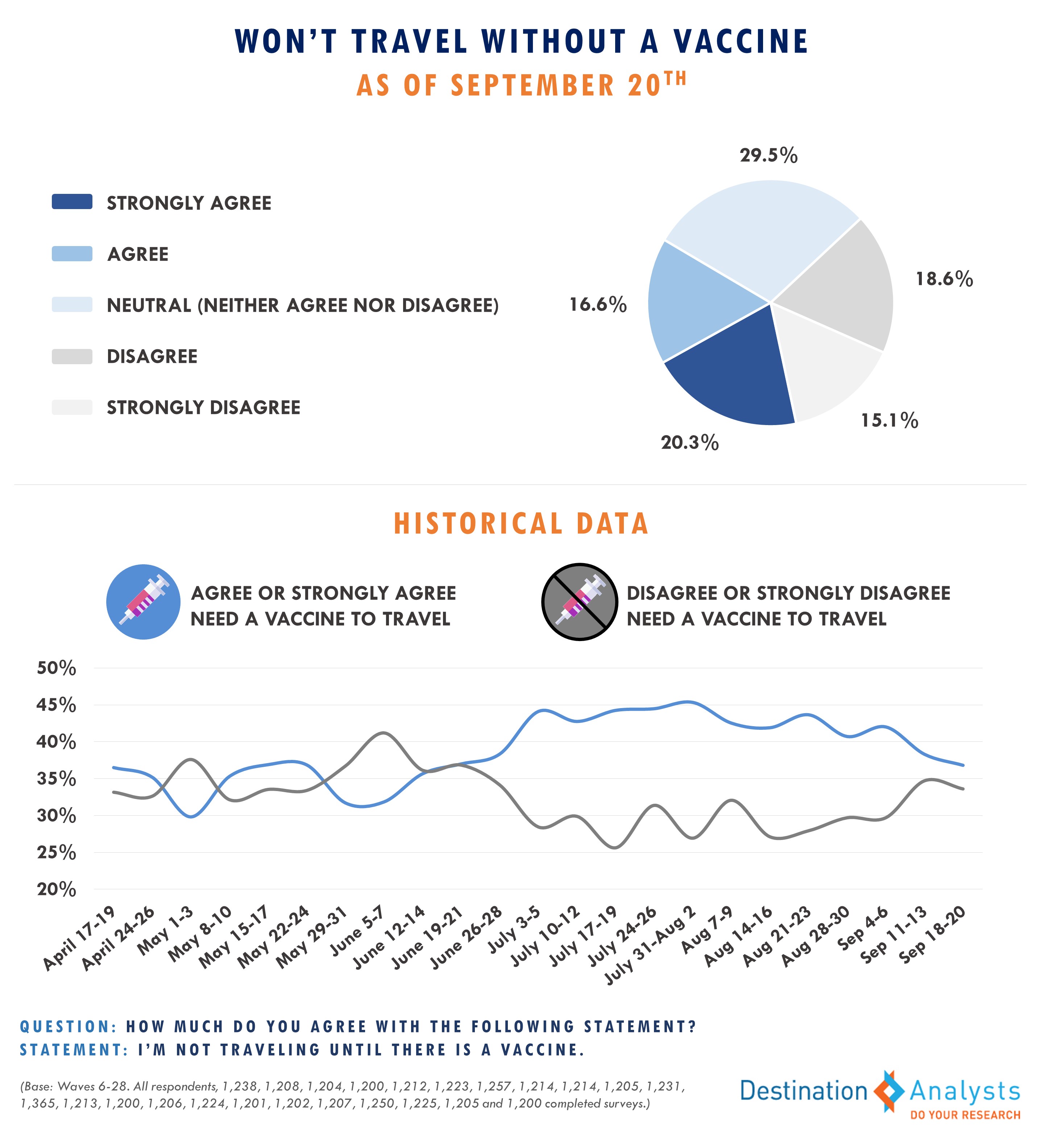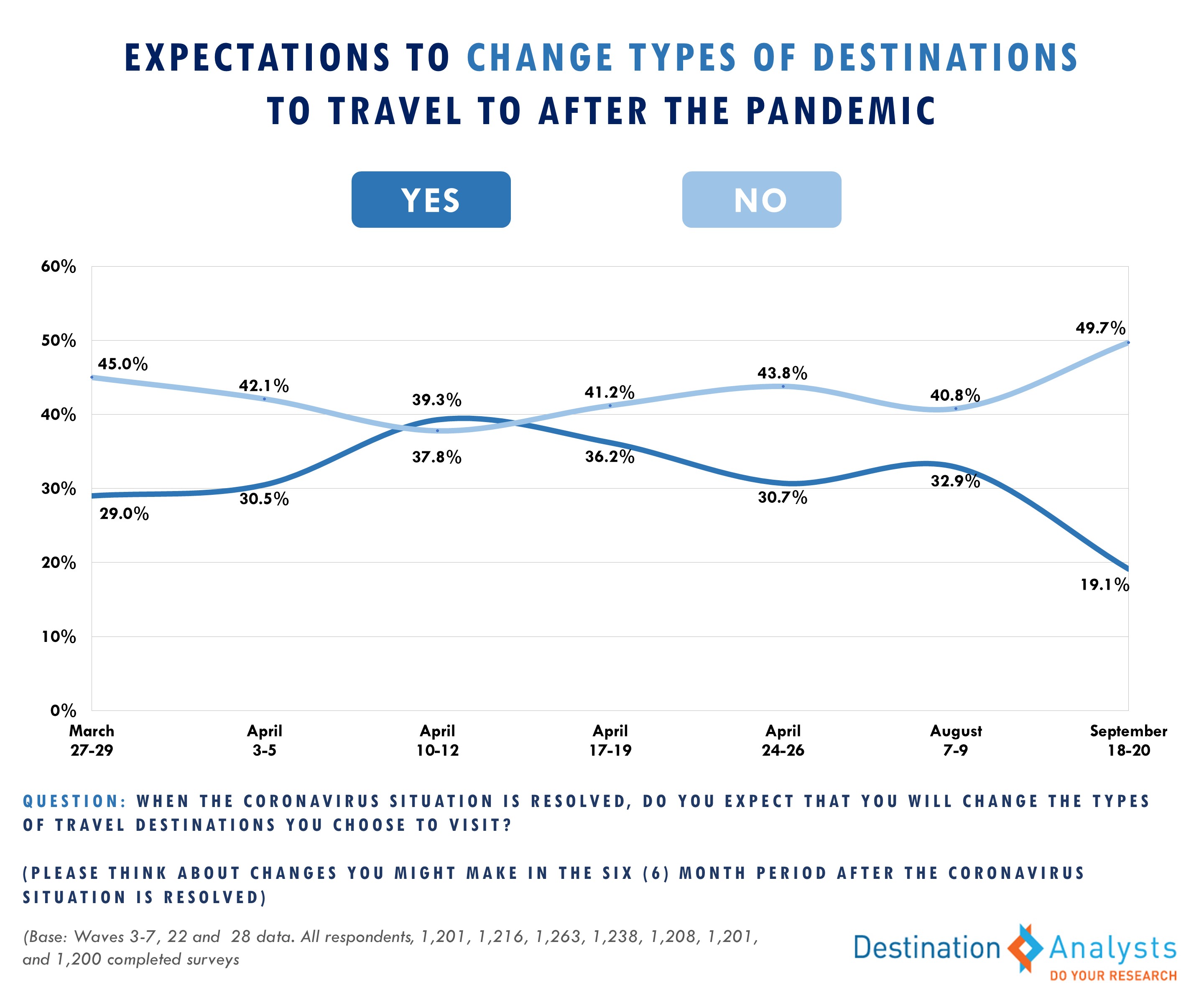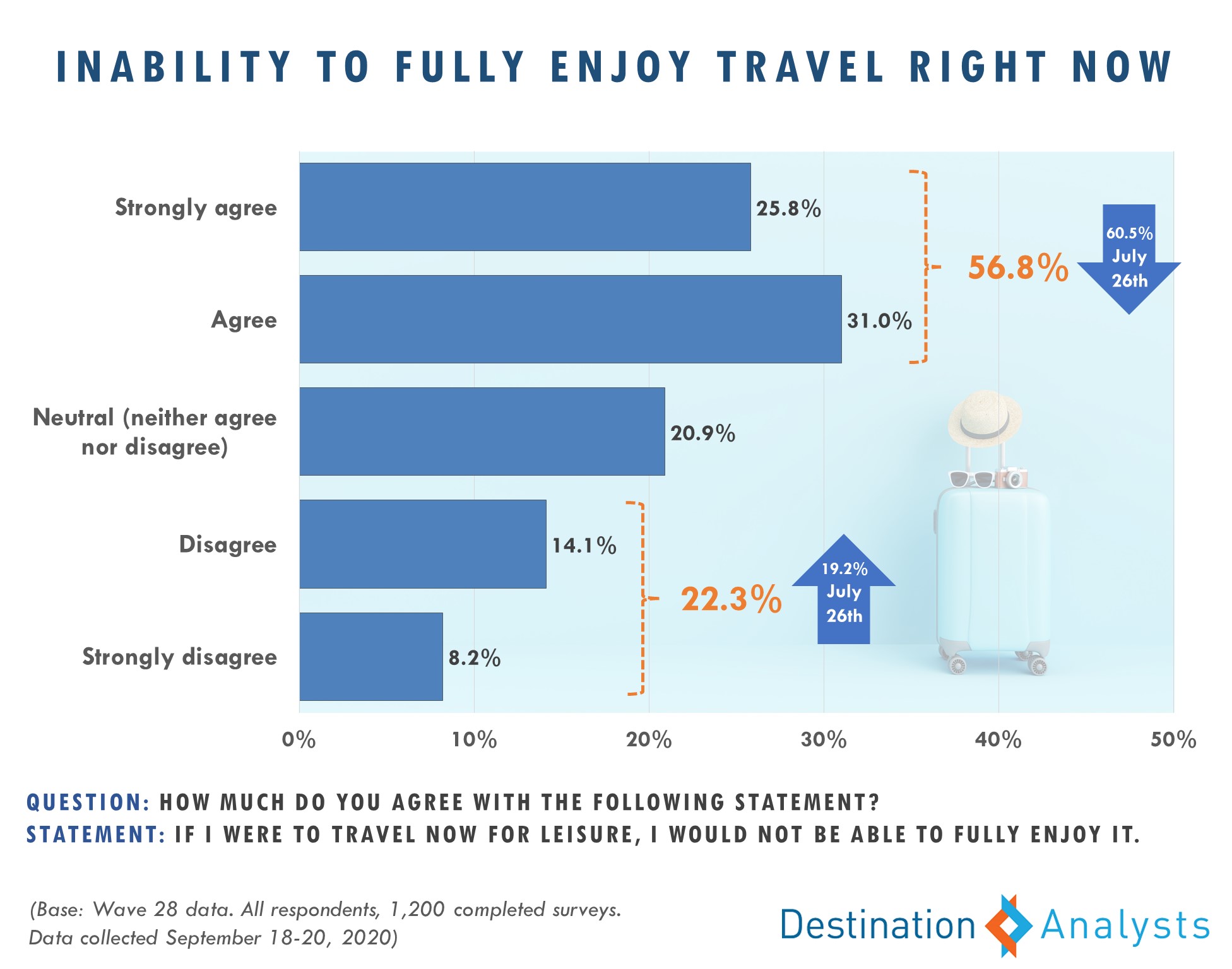Update on American Travel in the Period of Coronavirus—Week of September 21st
As Americans’ daily stress levels have recently increased, there will be a greater prioritization of having new experiences, escaping boredom and simply finding joy. Openness to travel—and feeling they will have a good time doing it—continues to bloom.
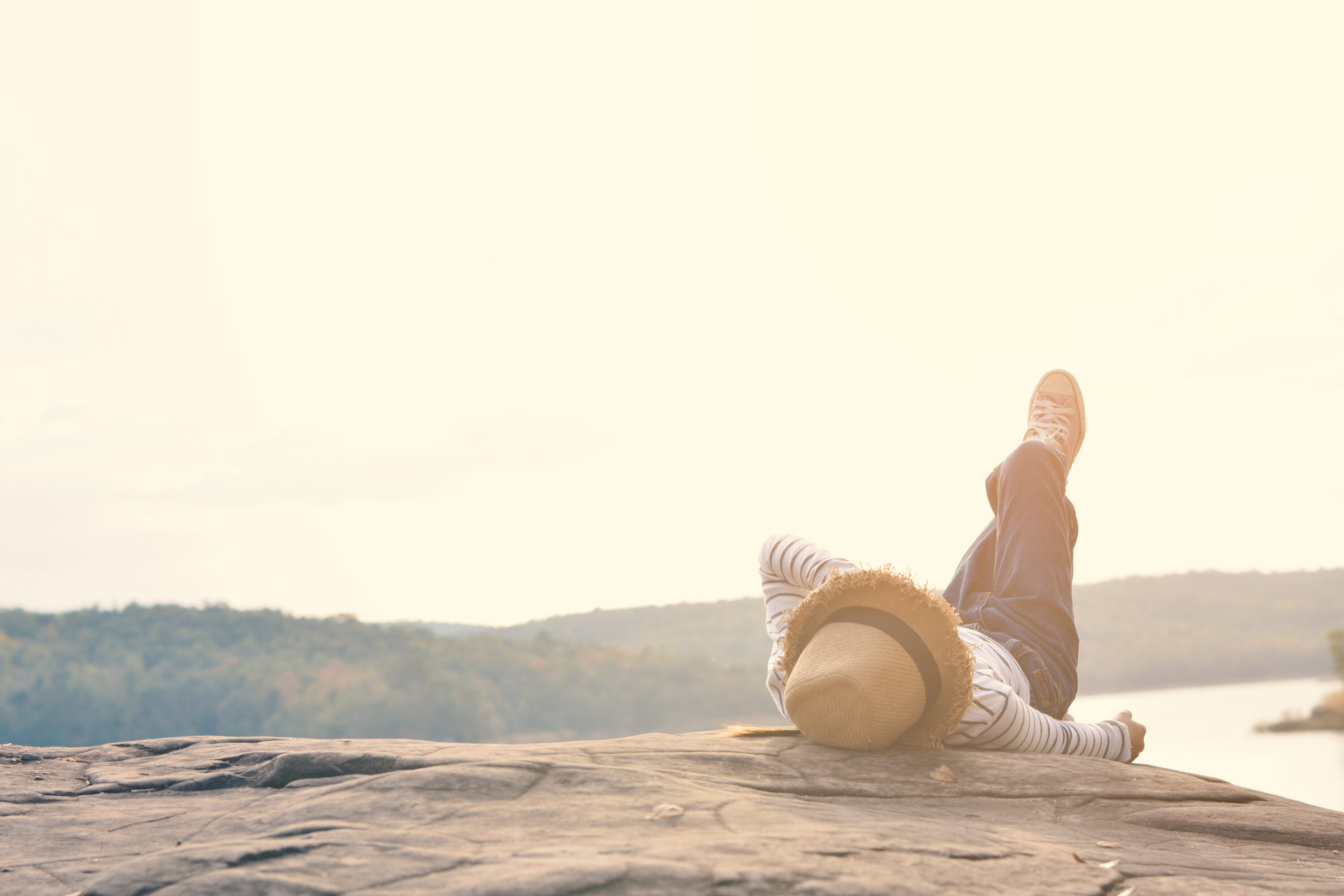
IMPORTANT: These findings are brought to you from our independent research, which is not sponsored, conducted or influenced by any advertising or marketing agency. Every week since March 15th, Destination Analysts has surveyed 1,200+ American travelers about their thoughts, feelings, perceptions and behaviors surrounding travel in the wake of the coronavirus pandemic, and explored a variety of topics. The findings presented below represent data collected September 18th-20th.
Key Findings to Know:
- Nearly half of American travelers feel a high degree of stress in their daily lives. But while stress is up compared to a few months ago, the propensity to worry about coronavirus is down.
- Since April, and amidst rising stress, more Americans are reporting stronger prioritization of relaxation, finding joy/happiness, and—especially important for travel—having new experiences.
- Those who are already traveling (or ready to without hesitation) are far likelier to be prioritizing finding joy and escaping from boredom in their lives over the next six months compared to other Americans.
- Openness to travel continues to bloom. The level of excitement for learning about new travel experiences or destinations to visit is at a pandemic-period high—one last obtained at the end of May.
- Unlike early on in the pandemic, now less than 50% of American travelers consider staying in a hotel, Airbnb or home rental, dining in a restaurant, visiting an amusement park or other outdoor attraction, recreating outdoors and shopping to be unsafe. Overall perceptions of travel’s safety remain at the lowest levels they have been during the pandemic.
- Now just 37% agree they need a vaccine to travel, down from a high of 45% at the start of August.
- Half as many Americans are saying they are going to change the types of travel destinations they choose to visit post-pandemic than in April, and among those that are saying they will indeed change the types of destinations they choose to visit, more positive reasons are being offered up as to why than in prior months, including an increased willingness to explore new destinations and crossing places off their bucket lists.
- Americans are also less likely to feel their leisure travel will be dampened by the current state of things.
As it has several other times during the pandemic, our research offers a deeper look into the mindset of American travelers right now, with the objective of helping the travel industry best address its customers’ most fundamental needs.
If you regularly feel an abundance of stress right now, you are among many other Americans: 47% feel a high degree of stress in their daily lives. Be it from managing distance learning for children to navigating extreme weather, Americans are a little likelier to be keeping themselves up at night and feeling tired than they were a few months ago. While stress is up, the propensity to worry about coronavirus, however, is down.
Our research also revisited Americans’ lifestyle priorities to see if any shifts occurred. Since April, and amidst rising stress, more Americans are reporting stronger prioritization of relaxation, finding joy/happiness, and—especially important for travel—having new experiences. Whether GenZ, Millennial, GenX or Baby Boomer, the generations are all in agreement on the prioritization of emotional well being, in addition to relaxation and finding joy/happiness. While staying safe from infection is also a top lifestyle priority across the board, it has nevertheless declined, most notably for Boomers, who have instead increased their focus on relaxation. Among Millennial and younger age travelers, escaping from stress and connecting with others are not quite as strongly priorities as was felt in August, instead returning back to May levels. GenX-age travelers are the likeliest to be prioritizing connecting with nature as they look out over the next six months of their lives. Perhaps of most importance, those who are already traveling (or ready to without hesitation) are far likelier to be prioritizing finding joy and escaping from boredom compared to other Americans.
With these patterns in both continued and shifting lifestyle priorities, openness to travel continues to bloom. As has been for the last month, over 54% of Americans identify with being in a “ready to travel” mindset versus needing more time. American travelers’ level of excitement for learning about new travel experiences or destinations to visit is at a pandemic-period high—one last (and only other time) obtained at the end of May, at the start of the summer season.
Unlike early on in the pandemic, now less than 50% of American travelers consider staying in a hotel, Airbnb or home rental, dining in a restaurant, visiting an amusement park or other outdoor attraction, recreating outdoors and shopping to be unsafe. Overall perceptions of travel’s safety remain at the lowest levels they have been during the pandemic. Over half of American travelers continue to say they are at least somewhat confident they can travel safely in this environment. Now just 37% agree they need a vaccine to travel, down from a high of 45% at the start of August.
With these growing feelings of safety surrounding travel, less Americans are saying they are going to change the types of travel destinations they choose to visit post-pandemic. In April nearly 40% of American travelers agreed they would change the destinations they traveled to, now less than 20% do—a 50% decrease. In addition, among those that are saying they will change the types of destinations they choose to visit, more positive reasons are being offered up as to why than in prior months, including an increased willingness to explore new destinations and crossing places off their bucket lists.
Finally, Americans are also less likely to feel their leisure travel will be dampened by the current state of things. This week, 56.8% agreed that if they were to travel now for leisure, they would not be able to fully enjoy it, down from 60.5% at the end of July. And now just 43.1% have some agreement with the statement “I have lost my interest in/taste for traveling for the time being,” down from 49.5%.

